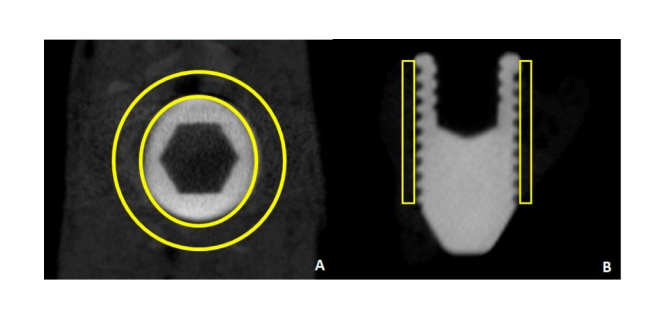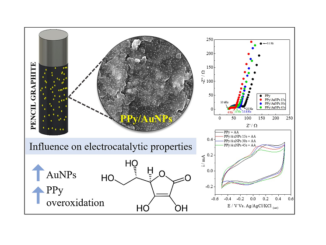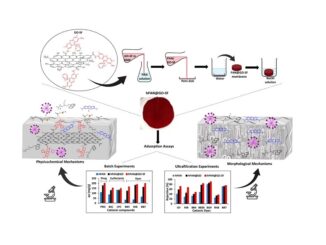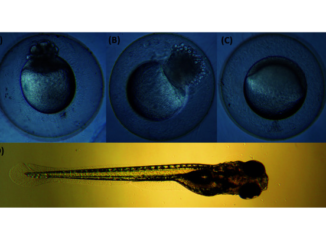
Comparison of osseointegration in areas grafted with different osteoconductive biomaterials
Abstract: This study evaluated osseointegration in areas grafted with deproteinized bovine bone (DBB) and biphasic ceramic based on hydroxyapatite and beta-tricalcium phosphate (HA/TCP) in rat tibias. Noncritical bone defects were made in the tibias of 28 rats that were randomly assigned to 2 groups: DBB: DBB-filled defects and HA/TCP: HA/TCP-filled defects. Bone defects were made in the tibias bilaterally and filled with biomaterials. After 60 days, the implants were inserted, and the animals were euthanized 15 and 45 days after the implants were installed. Osseointegration was evaluated by biomechanical, microtomographic and histometric analysis. Implants installed in the defects filled with DBB presented higher removal torque forces (2.33 ± 0.51 Ncm vs. 1.50 ± 0.54 Ncm) and mineralized tissue volume around implants at 15 days (34.96 ± 3.68 % vs. 25.61 ± 2.95 %) and greater bone-implant contact (20.87 ± 8.28 % vs. 11.52 ± 7.42 %) and bone area within implant threads (26.83 ± 12.35 % vs. 11.98 ± 7.56 %) at 45 days compared to the measurements of implants in areas grafted with HA/TCP. Implants installed in defects in areas grafted with DBB had a better osseointegration pattern than implants placed in defects in areas grafted with HA/TCP.
Author(s): Oliveira, V.X.R.; Pinotti, F.E.; Marcantonio, R.A.C.; Marcantonio Jr, E.; Oliveira, G.J.P.L.
Braz. Dent. J.
Published: Jan-Feb 2022
DOI: https://doi.org/10.1590/0103-6440202204378
CDMF
The CDMF, hosted at the Federal University of São Carlos (UFSCar), is one of the Research, Innovation and Dissemination Centers (RIDC) supported by the São Paulo State Research Support Foundation (Fapesp), and also receives investment from the National Council Scientific and Technological Development (CNPq), from the National Institute of Science and Technology of Materials in Nanotechnology (INCTMN).




